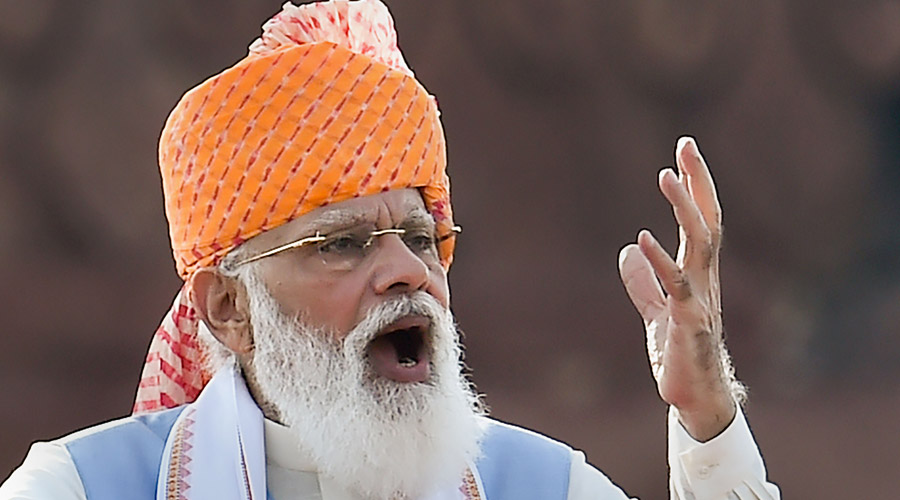The prime minister’s address on Independence Day may have been colourless but he did make a singular announcement a day before. August 14, Narendra Modi declared, would be remembered as ‘Partition Horrors Remembrance Day’. Mr Modi’s epiphanies are not known to be independent of political imperatives. There is no denying the fact that the subcontinent experienced an unprecedented humanitarian tragedy brought about by a combination of factors — a complicit colonial government, communal fault lines and political opportunism. But Mr Modi’s invocation of the Partition, critics allege, is consistent with his polarizing politics. India’s western neighbour — August 14 happens to be Pakistan’s Independence Day — is a handy political tool for Mr Modi to deflect public attention from the failures of his own government. His utterance assumes significance because the Uttar Pradesh assembly polls, supposedly a barometer of the national mood, are not too far away.
There is, however, a broader ethical quandary that must not go uncommented. Trauma, history shows, is synonymous with nationhood. India and Pakistan were nations forged in the fire of conflict. The flames had different kinds of impact on them. Pakistan emerged by embracing its founder’s bitterly divisive ‘two-nation theory’. India rejected religious exclusivity, striving, not without difficulties, to honour the vision of a democratic, inclusive, secular republic as envisaged by the founders of its Constitution. This willingness to rise together from the ashes of discrimination, to heal and be healed — there could not have been a more unambiguous denouncement of the horrors of Partition that Mr Modi now wants the nation to commemorate. Without being in denial of the trauma, as was the case with post-War Germany, India and its leadership chose to look the toxic legacy of Partition in the eye so as not to repeat its folly. Pakistan’s dismemberment — Bangladesh was born amidst blood, sweat and tears — validated India’s tryst with accommodation. There is a case to argue that under Mr Modi’s stewardship, India seems to have lost much of its faith in its self-fashioned model of a pluralist republic. New India could well become a pale ghost of the constitutional vision if the prime minister reneges — has he not already? — on his pledge of collective welfare. Instead of reminiscing on past wounds, India must expend its energy to ensure that they are not opened up, once again.










